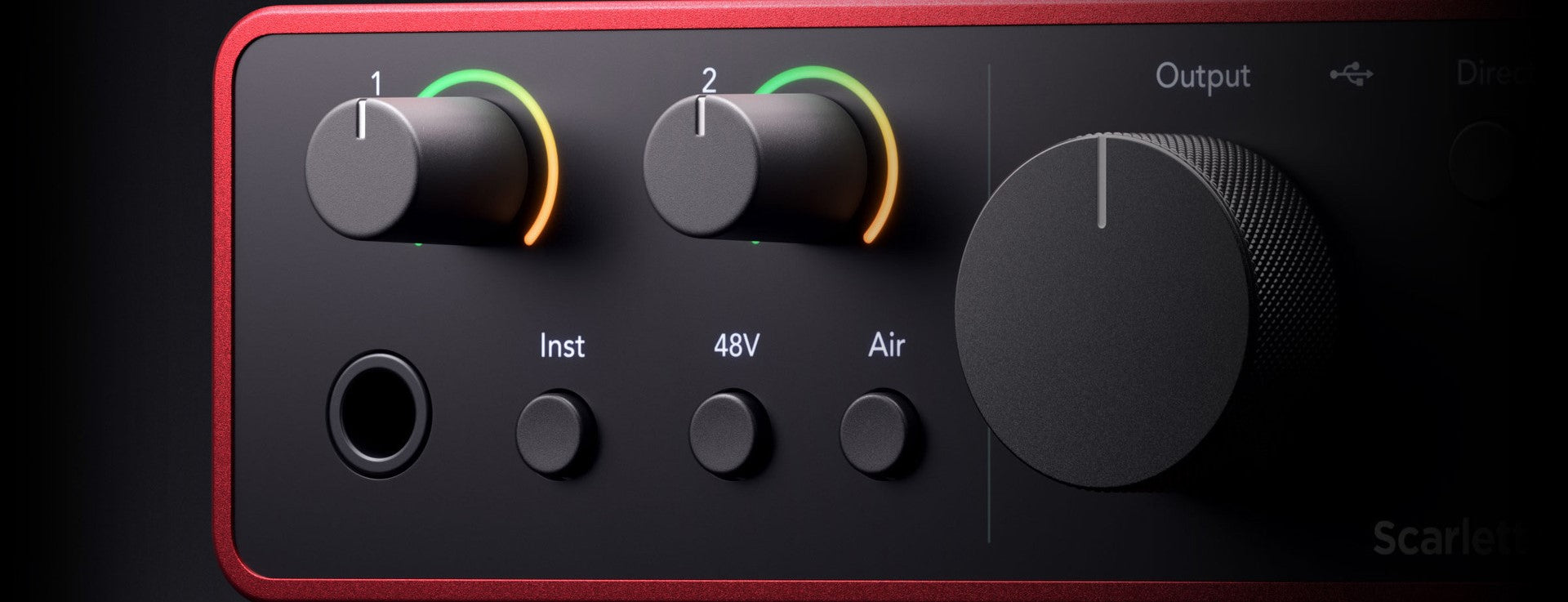Understanding Guitar Strings | String Buying Guide
What guitar strings do i need? What is the best string gauge? Do I need coated strings? How often should I change my strings? As a guitar instructor, I get asked these questions all the time. There are so many string choices out there that the budding guitarist can be overwhelmed when making their first string purchase. This string buying guide will hopefully make that process a little bit easier.
Quick Rundown
-
Strings corrode and lose their tone over time. They need to be changed periodically so your guitar can sound it's best.
- Beginners should change their strings at least once every 2 months.
-
String gauge refers to the thickness of the string, measured in 1/1000th of an inch
-
Smaller String gauges provide a brighter tone and require less finger strength.
-
Bigger String Gauges provide more volume and thicker tone. They also hold up better when drop tuning.
-
Coated strings resist corrosion and last longer than un-coated strings.
How Do I know When It's Time To Change Strings?
Look for the following:
- Loss of brightness in your guitars Tone
- Loss of volume
- Strings feel rough to the touch. Especially noticeable when sliding.
- Strings are discolored, rusty and / or dirty
Sweat and dirt from our fingers get into the wrappings of those shiny metal strings causing them to corrode over time. This leads to a dull tone and a rough string surface that is uncomfortable to play on. Guitar strings need be changed every so often to keep your guitar sounding, and playing it's best.
There are a number of factors that lead to string decay. If you live in an area with high humidity, have naturally sweaty fingers, or just play a lot, you will need to change your strings more often. Gigging musicians may change their strings once a week or between each gig. Generally speaking, a beginner student should probably change their strings once every month or two.
Does String Gauge Matter?
Yes it does. In general, beginners will most likely be happier with a lighter gauge as they require less finger strength. More advanced players, especially acoustic guitarist, will prefer a standard / medium gauge to maximize tone and volume. Drop tuners and metal heads will prefer heavy gauge strings as they maintain tension when tuned down.
Heavier, or thicker, gauges will provide more volume and thicker tone. Obviously a thicker string will have more mass and "move more air" than a smaller string which has less mass. Electric guitar amps can often make up for the loss of volume and tone with a few EQ tweaks. Acoustic guitars however, are entirely at the mercy of the natural acoustic sound produced by the string and wood vibrations. For this reason, acoustic players tend to opt for heavier gauges to get the most volume out of the guitar. Electric players often prefer lighter strings as they are easier on the fingers and make lead techniques such as bending much easier.
Heavy gauge strings are a must for who wish to use modern "Drop" tunings. The 9-42 or even 10-46 gauges will not hold up well in drop C tuning as the strings will be to loose and floppy. Needless to say, floppy does not a good tone make.
Common String Gauge Chart
|
String Set Gauge |
Electric Guitar |
Acoustic Guitar |
|
Super Light |
9-42 | 11-52 |
|
Light |
10-46 | 12-54 |
|
Medium |
11-50 | 13-56 |
|
Heavy |
12-54 | 14-59 |
Coated Vs. Un-Coated
Coated strings are dipped in a special coating that resists corrosion and lengthens the life of the string. Many players feel that these coated strings have muffled or dull tone compared to an un-coated string, and prefer to use the all natural un-coated strings instead. These coatings also provide a slightly different feel on the fingers which some might find off-putting. It really comes down to personal preference here. The Holy Grail for string manufacturers, is to make a coated string that sounds and feels like an uncoated string. D'addario's XT line and Elixir's Optiweb Line are marketed as having the best of both worlds. Both companies tout that their proprietary, ultra-thin coatings provide a natural sounding string with the all the benefits of a coated string. Ultimately you'll have to decide for your self.
What String Materials Are Best?
We aren't going to get deep into this subject here. Manufacturers are constantly trying new things to push the envelope. Strings made of different materials produce slightly different tones. As a beginner, don't worry too much about this just yet. Experiment with different strings over time and see what you like best. That being said, the basics are as follows:
Electric guitar strings generally consist of a steel core with some sort of nickel alloy wrapping. These metals produce a bright tone and have strong magnetic properties, necessary for interacting with electric guitar pickups.
Acoustic guitar strings also have steel cores and are wrapped with some sort of bronze alloy which produces a stronger acoustic resonance and warmer tone than electric guitar strings.
Still unsure which direction you should go? Experimentation is key. Buy from a reputable manufacture and you will be fine. The first thing to figure out is your preferred gauges. Here is my short list of specific string packs to start with. Try these and see what you like and don't like.
Popular Electric Guitar Strings
Popular Acoustic Guitar Strings
Elixir Nanoweb Phosphor Bronze
|
About The Author Adam Eschliman the ecommerce director for Yandas Music. He has been with the company for over a decade and has gathered a wealth of knowledge in the music industry.  |




3 comments
I’ve been using elixir nanoweb for years on all of my guitars. Great strings!
I’m an Ernieb Ball Man. Super slinkies on my electrics and Earthwoods on my acoustics.
Really good information! Another good tip is to keep the old packaging because I always forget what strings I put on last. That way I know what gauge is on my guitar and what brand in-case I really like them.